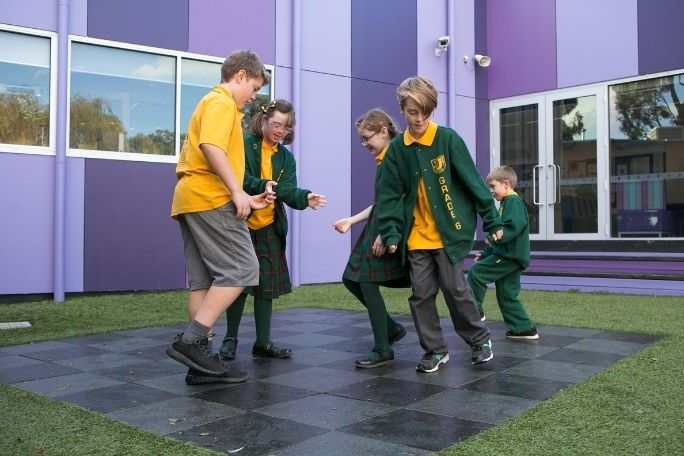Lesson summary
In this lesson, students will explore the text The Girl Who Thought In Pictures, considering the challenges and barriers that are presented for some children and adults in our society. They then broaden their thinking to consider that we are all different and everyone has different skills, strengths and weaknesses. They think about what their own strengths are by ranking how confident they are with a variety of different activities. Students then apply this thinking to select what activity they will participate in in a group challenge. This lesson concludes with students reflecting on ways we can help everyone in our society to be successful.
Learning intentions:
Students understand...
- that we are all individuals with unique strengths and different needs
Success criteria:
Students can...
- identify the types of activities they are more comfortable and confident with
- explain that we all have different strengths
- make decisions based on their knowledge of their own skills, interests and apprehensions as well as those of others
- recognise the need to be supportive and inclusive of all, despite differences between us
Lesson guides and printables
Lesson details
Curriculum mapping
Australian curriculum content descriptions:
Years 5 & 6 Health and Physical Education:
- Identify how valuing diversity positively influences the wellbeing of the community (ACPPS060)
- Participate positively in groups and teams by encouraging others and negotiating roles and responsibilities (ACPMP067)
Syllabus outcomes: COS3.1, IRS3.11, INS3.3.
General capabilities: Literacy, Personal and Social Capability, Ethical Understanding, Critical and Creative Thinking.
Relevant parts of Year 5 & 6 Health and Physical Education achievement standards: By the end of Year 6, students explain the influence of people and places on identities. They recognise the influence of emotions on behaviours and discuss factors that influence how people interact. They describe their own and others’ contributions to health, physical activity, safety and wellbeing. They examine how physical activity, celebrating diversity and connecting to the environment support community wellbeing and cultural understanding. Students demonstrate fair play and skills to work collaboratively.
This lesson is part of the wider unit of work Including Everyone
Time required: 80 mins
Level of teacher scaffolding: Low – students focus on creating representations of themselves and making selections that allow them to show their strengths
Resources required
- The Girl Who Thought in Pictures – The Story of Dr. Temple Grandin by Julia Finley Mosca, or a device capable of displaying a video to the class
- Show Strength Challenges sheet
- List Your Strengths sheet
- pencils and plain paper
- dry spaghetti (1/2 packet per participant)
- marshmallows (1/2 bag per participant, or alternative construction resources that you already have in the school)
Skills
This lesson is designed to build students’ competencies in the following skills:
- Collaboration
- Communication
- Creativity
- Empathy
- Ethical understanding
- Social skills
Additional info
These lessons have been developed in partnership with Down Syndrome Australia.


Welcome back!
Don't have an account yet?
Log in with:
By signing up to Cool.org you consent and agree to Cool's privacy policy to
store, manage and process your personal information. To read more, please see
our privacy policy here(Opens in new tab).
Create your free Cool.org account.
Many of our resources are free, with an option to upgrade to Cool+ for premium content.
Already have an account?
Sign up with:
By signing up to Cool.org you consent and agree to Cool's privacy policy to
store, manage and process your personal information. To read more, please see
our privacy policy here(Opens in new tab).